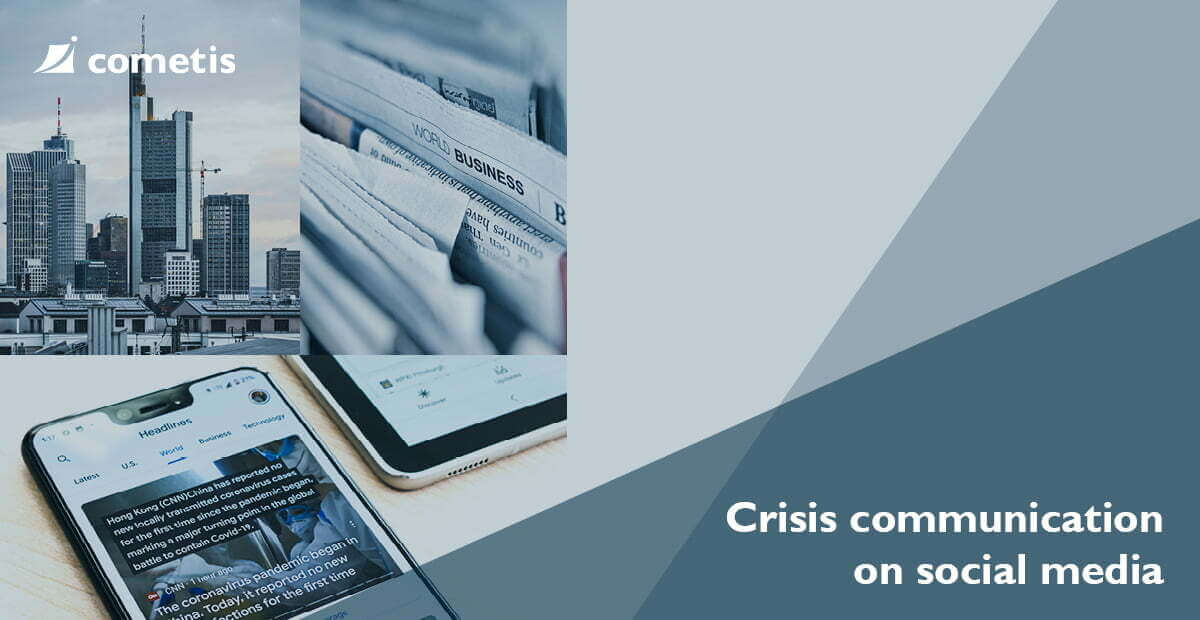How to use social media for crisis communication?
What to do when the company is in crisis and negative comments are hailing on social media?
If the year 2020 has shown us all one thing, it is probably the realisation that a crisis can lurk around every corner. Both the Corona pandemic and the Black Lives Matter movement have called for different approaches to crisis communication at all levels. These difficult situations had in common that communication found its expression on social media, among other places.
Even listed companies can get into crises – be it a management mistake or, say, a product shortcoming that brings negative media coverage to the company. But what is the best way for a company to communicate when its critics have recently taken to social media?
The preparations that every company can make even without an acute crisis are important, in order to be ready to react in case of an emergency. In this context, it is advisable to carry out constant social media monitoring in connection with a crisis communication strategy in order to identify possible sources of danger at an early stage and idealy to prevent them. Every company should be aware of which negative comments could develop into a so-called shitstorm. To what extent should these be tolerated? At what point does the problem turn into a crisis that needs to be responded to? All these points should be worked through in the course of a crisis definition. In addition, it is advisable to define contact persons in advance who are available for dialogue in an emergency.
The goal of crisis communication is and remains to solve the problem. Here, it is not only essential for the company to show a reaction and de-escalate in the social media. Rather, it must become apparent that the company concerned is aware of the criticism and is actively dealing with it. In addition, the company should avoid dodging open dialogue by deleting negative comments or even remaining silent on the issue. Giving dialogue the space it needs – that is the be-all and end-all of any valuable communication. In the course of reputation management and external communication, it is also advisable to agree on a language rule for all employees so that statements can be positioned in public that are as consistent as possible.
On the other hand, private responses to negative comments should be avoided, as should the permanent justification of the company. The counterattack approach also has no place on social media. Since communication on social media takes place in real time, it functions like a catalyst for anger, which can spread very quickly if not communicated thoughtfully.
In any crisis, it is important for the company to rebuild trust with the customer. In order to appear as confident as possible in a crisis, it is advisable to prepare the responsible persons of a company for certain critical situations with a detailed and situational media training.
Stay in control of the situation – even in a crisis. cometis will be happy to advise you and help you to smooth the waters on- and offline. You can find more information here.

